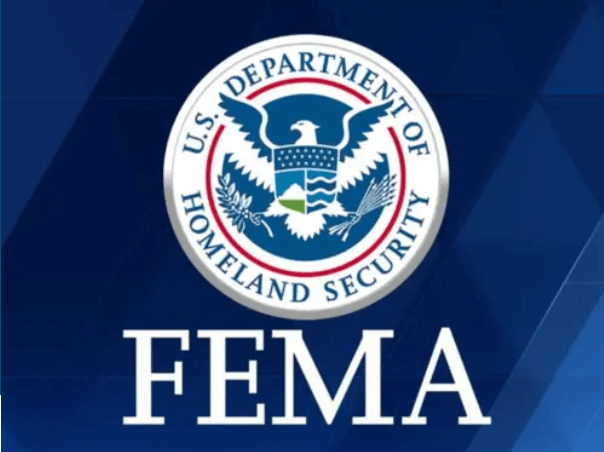NorthByNorthwest RV Park: Hurricane Relief Shelter
At NorthByNorthwest RV Park, located in the heart of Jonestown, Central Texas, we understand the challenges and uncertainties that come with hurricane season. To support those affected, we are offering a 30% discount on RV slots for hurricane evacuees seeking shelter and safety. Our peaceful, spacious park provides a safe haven where you can rest and recover during these difficult times.
For your convenience, we’ve also compiled a list of emergency resources and state/federal assistance programs below to help you access the support you need.
At NorthByNorthwest, We Care
Connecting You to Vital State and Federal Support Services

- 1. Federal Resources
Federal Emergency Management Agency (FEMA):
Disaster Assistance: FEMA provides grants for temporary housing, home repairs, and other disaster-related needs. Individuals can apply for assistance at DisasterAssistance.gov or call 1-800-621-FEMA (3362).
Shelter and Temporary Housing: FEMA may also offer shelters or temporary housing options in the aftermath of a disaster.
Crisis Counseling Assistance: FEMA funds crisis counseling services for individuals dealing with the emotional impacts of a disaster.
Small Business Administration (SBA):
The SBA provides low-interest disaster loans to homeowners, renters, businesses, and private nonprofits to help recover from disaster-related losses. Visit sba.gov or call the Disaster Loan Assistance hotline at 1-800-659-2955.
Department of Housing and Urban Development (HUD):
HUD offers disaster relief in the form of mortgage assistance and housing grants. Homeowners with HUD-insured mortgages can qualify for foreclosure relief.
Centers for Disease Control and Prevention (CDC):
The CDC provides guidance on safety measures, health risks, and disease prevention in the wake of a hurricane. For health-related concerns, visit cdc.gov.
- 2. State Resources
State Emergency Management Agency: Each state has an emergency management agency that coordinates disaster response and recovery efforts. They may offer financial assistance, shelter information, and disaster-related services.
You can search for the state-specific emergency management office by visiting their state website or calling their hotline.
State Disaster Unemployment Assistance (DUA): In many states, workers who lose their jobs due to a disaster can qualify for unemployment benefits. This includes individuals who are self-employed.
Visit your state's Department of Labor website to learn about DUA benefits.
State Housing Finance Authorities: Many states offer disaster housing assistance through their housing finance authorities, providing resources for home repairs, rent assistance, or mortgage relief.
State Insurance Department: For assistance with filing insurance claims, residents can reach out to their state’s insurance department for guidance on dealing with hurricane-related damages.

- 3. Local Resources
Local Emergency Management Agencies: Counties and cities usually have emergency management agencies that help with shelter locations, food distribution, and local recovery efforts. They will have the most immediate information for those displaced by the storm.
Contact your local city or county office for a list of shelters or recovery centers in the area.
Community Action Agencies: These agencies can offer housing assistance, utility relief, food services, and other forms of disaster relief. They are often part of the local government or non-profits.
Local American Red Cross Chapter: The Red Cross provides disaster relief, including temporary shelters, meals, and supplies to affected individuals. You can find the nearest Red Cross shelter by visiting redcross.org.
Local Food Banks and Shelters: Many local organizations, churches, and non-profits organize food and clothing drives for disaster victims. Food banks often ramp up their efforts to provide meals to affected communities.
Visit local food bank websites or contact organizations like Feeding America.
- 4. Non-Profit and Volunteer Organizations
Salvation Army: Provides disaster relief, including meals, shelters, and other essentials. You can find assistance by visiting their local chapters or salvationarmyusa.org.
United Way: The United Way often coordinates local disaster recovery efforts. Call 2-1-1 to get connected to local resources and shelters in your area.
Habitat for Humanity: Offers rebuilding services for communities impacted by hurricanes. Visit habitat.org for local chapters and assistance programs.
National Voluntary Organizations Active in Disaster (NVOAD): NVOAD coordinates many disaster relief agencies, helping connect victims with volunteer services for recovery and rebuilding. Visit nvoad.org.

- 5. Financial Assistance and Grants
Disaster Supplemental Nutrition Assistance Program (D-SNAP): Provides food assistance to low-income households affected by natural disasters. Residents should check with their state’s SNAP office to apply.
Rental Assistance: Some local and state governments, in partnership with HUD, may offer rental assistance for those displaced from their homes.
- 6. Mental Health Support
Disaster Distress Helpline: Free, confidential crisis counseling is available 24/7 for those affected by disasters. Call 1-800-985-5990 or text TalkWithUs to 66746.
Local Community Mental Health Centers: Many states offer free or low-cost mental health services through local community health centers for disaster survivors.